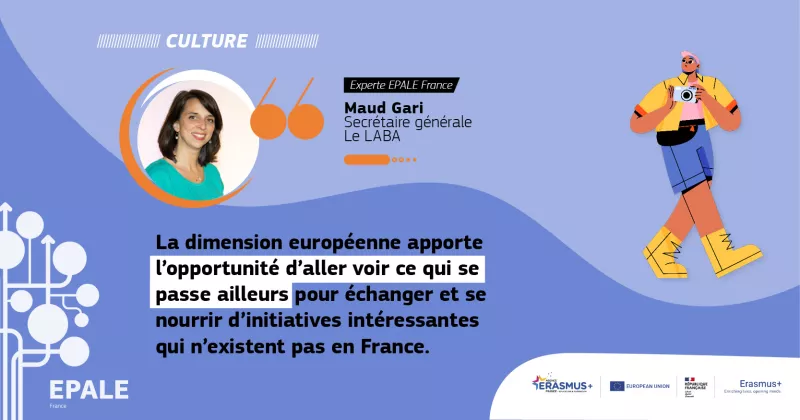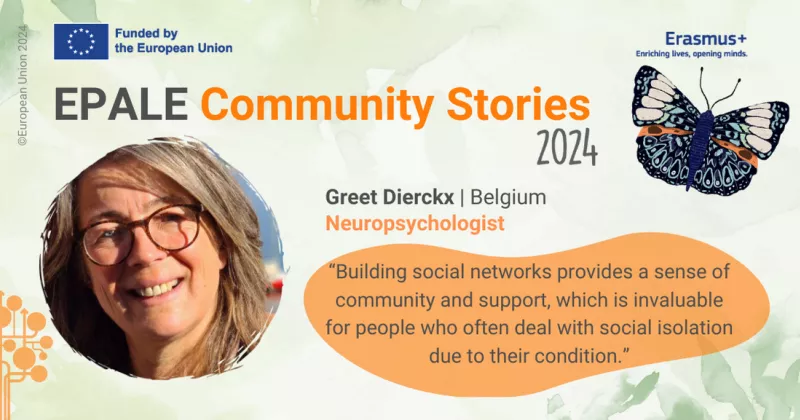Jelena Posavec, a Community Story from Croatia

I am a social worker with a Master's in Social Policy. I am working as a project manager at Initiative - Centre for English language and adult learning in Croatia's capital, Zagreb. There I manage the Erasmus + and European Social Fond projects. I have 3 years of experience in adult education as a trainer, coordinator, and activities manager.
My career focuses on providing support in adult education to marginalised people and those with fewer opportunities. Currently, I am working with adult refugees providing them with training and the necessary tools to integrate into the Croatian workforce and life in general. In the meantime, I am looking for new and exciting projects with people who believe in change and want to work on improving their organisation. Aside from adult education, I'm interested in subjects of forced immigration and refugee integration as well as feminism and social movements.
My adult learning organisation is mainly focused on providing English language courses, with a special focus on developing soft skills for better employment and integration into the workforce in the EU.
I heard about EPALE when participating in my first Erasmus + workshop 3 years ago. I signed up immediately. The platform has been very helpful for finding partners, brainstorming ideas, and keeping up to date with the latest innovations in adult education.
When people were talking about COVID-19 becoming a potential threat, our organisation started taking note of what was happening and how the situation was developing.
We started talking about online classes at the beginning of March when many of us dismissed the topic with a smirk. Luckily, our management approached the potential threat wisely and prudently. Although a lockdown hadn't yet been announced, and nobody was really expecting it, we started to explore the ways in which we could continue with classes if it was to come to that.
When one of our employees' family members was sent home from work, we started to take things more seriously and started organising online classes, to prepare for the worst.
Within three days, the whole organisation was prepared for the worst, with the lockdown being announced, starting on 18 March 2020.
It was a Monday, but the week before – from Wednesday to Sunday – we had been recording video tutorials on how to participate in Zoom classes, and had set up and organised the schedule for over 200 lessons on the Zoom platform, and then again in our own CRM system. On top of that, we had to inform over 700 students about online classes and let them decide if they wanted to continue with us or not. Based on that, we had to reorganise existing groups.
Twenty-three teachers had to be “taught” how to teach classes from home and had to be familiarised with the Zoom program and the new way of working at the organisation. We also set up online support for students and teachers alike. In addition, it was necessary to share the work equipment that was available to us at the time – from laptops, keyboards, workbooks for home use...
The task was challenging, but we were ready for it. After five days of intense work by all the members of our organisation, the school commenced its first online lessons on the Monday – the first day of lockdown in Croatia. While other organisations were just starting to come to terms with the reality of a halt in in-school lessons, we were already three steps ahead.
The first week flew by chaotically. It was the first time many students had used online tools, and support was needed for them to be able to participate in classes. Many teachers also had problems with internet connections, equipment, etc. This resulted in an almost constant need for online support, which was provided to both students and professors. Alas, our efforts paid off. We realised that we were one of the few schools which had had a smooth transition from in-school to online lessons during the first days of lockdown. The support and reliability we provided for our students resulted in an unbelievable sense of thankfulness for, and confidence in, our organisation.
In the end, our organisation didn't end up losing students but rather expanded its coverage over the whole of Croatia. Whereas before the COVID 19 crisis we were only focused on Zagreb and Split where we had schools, and the Skype lessons were only offered to a few classes a week.
Now, when online lessons have become the new norm, our organisation has also broadened the type of services we can offer to our students online.






Excellent example of all the